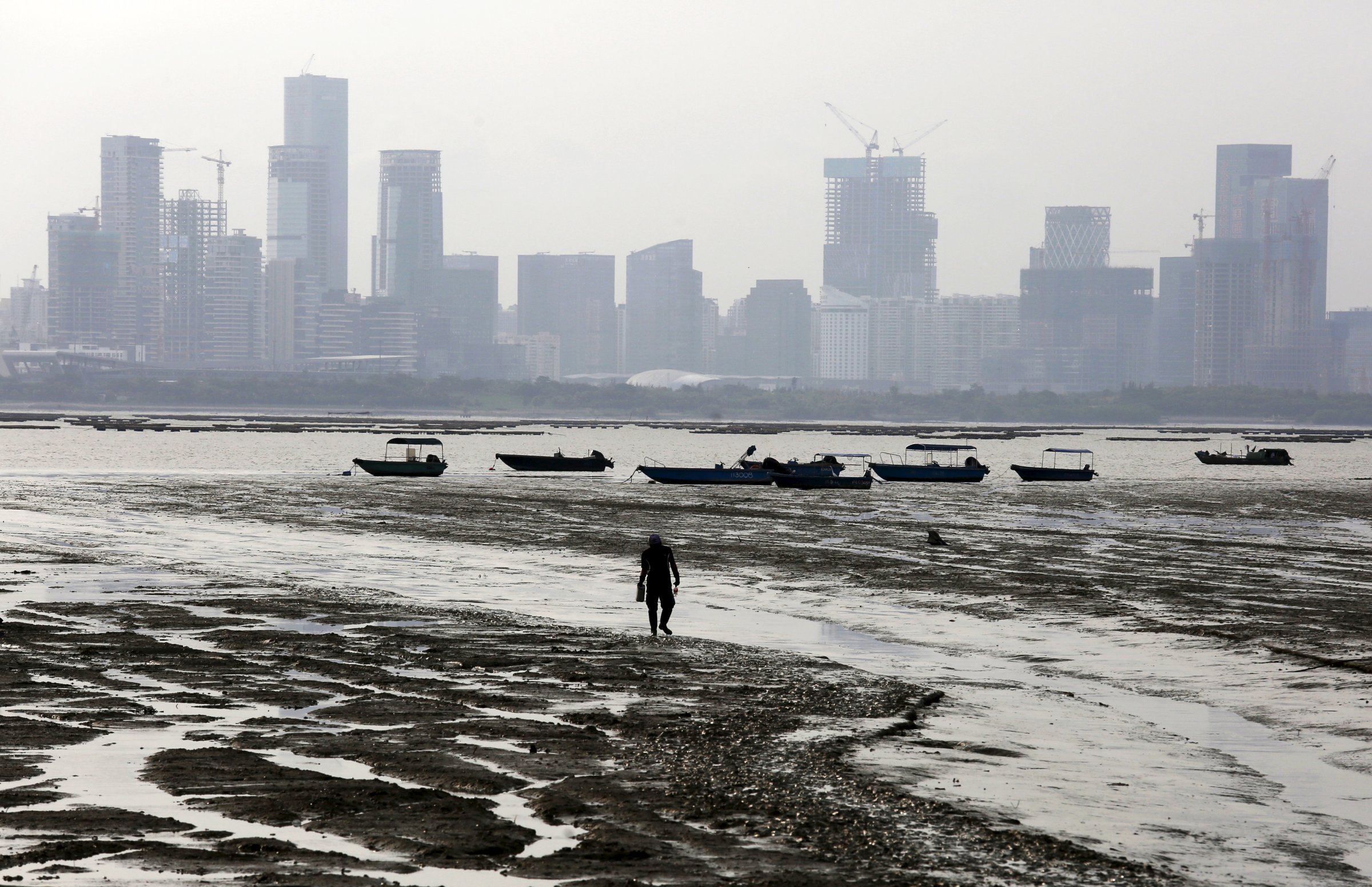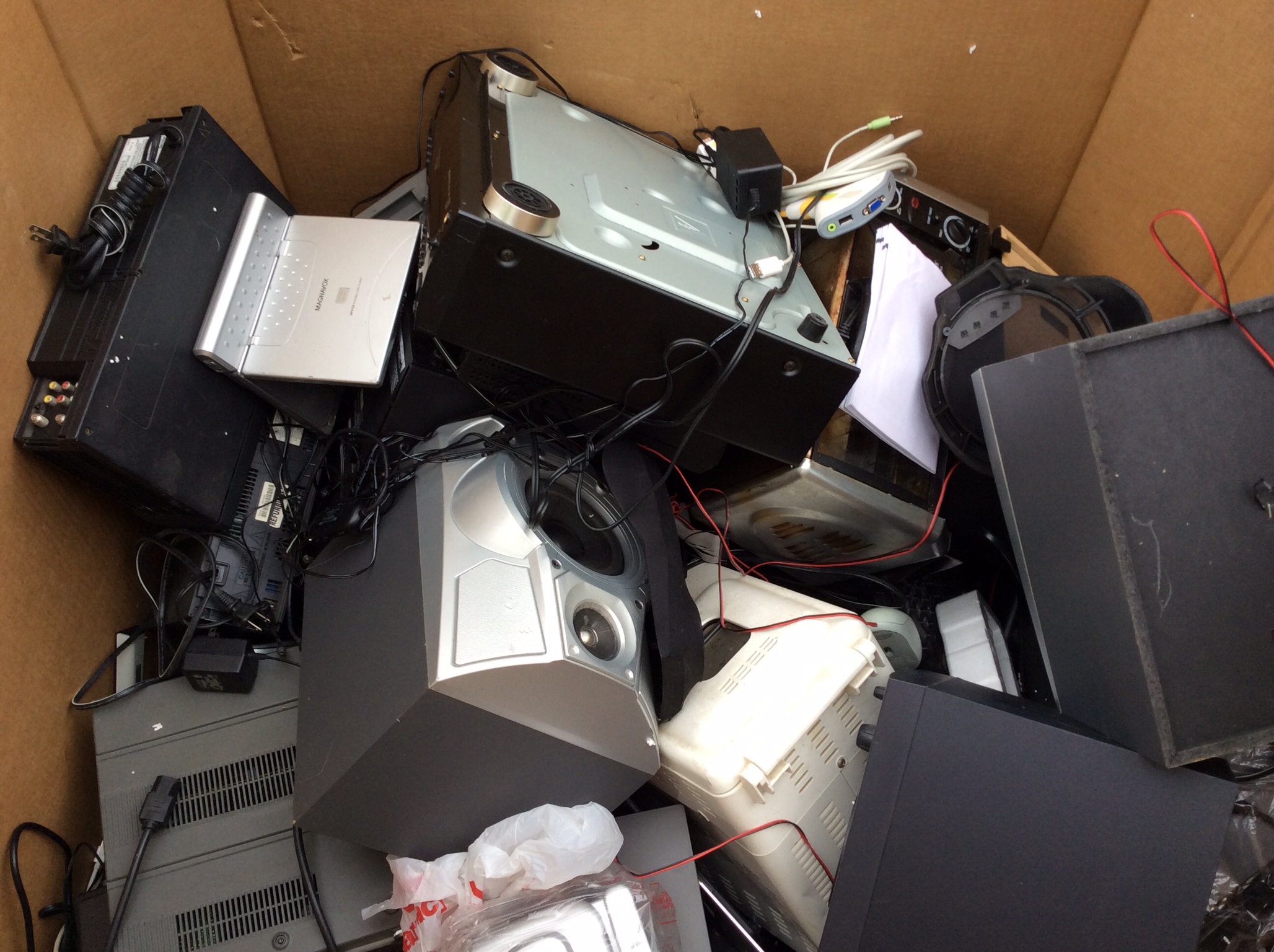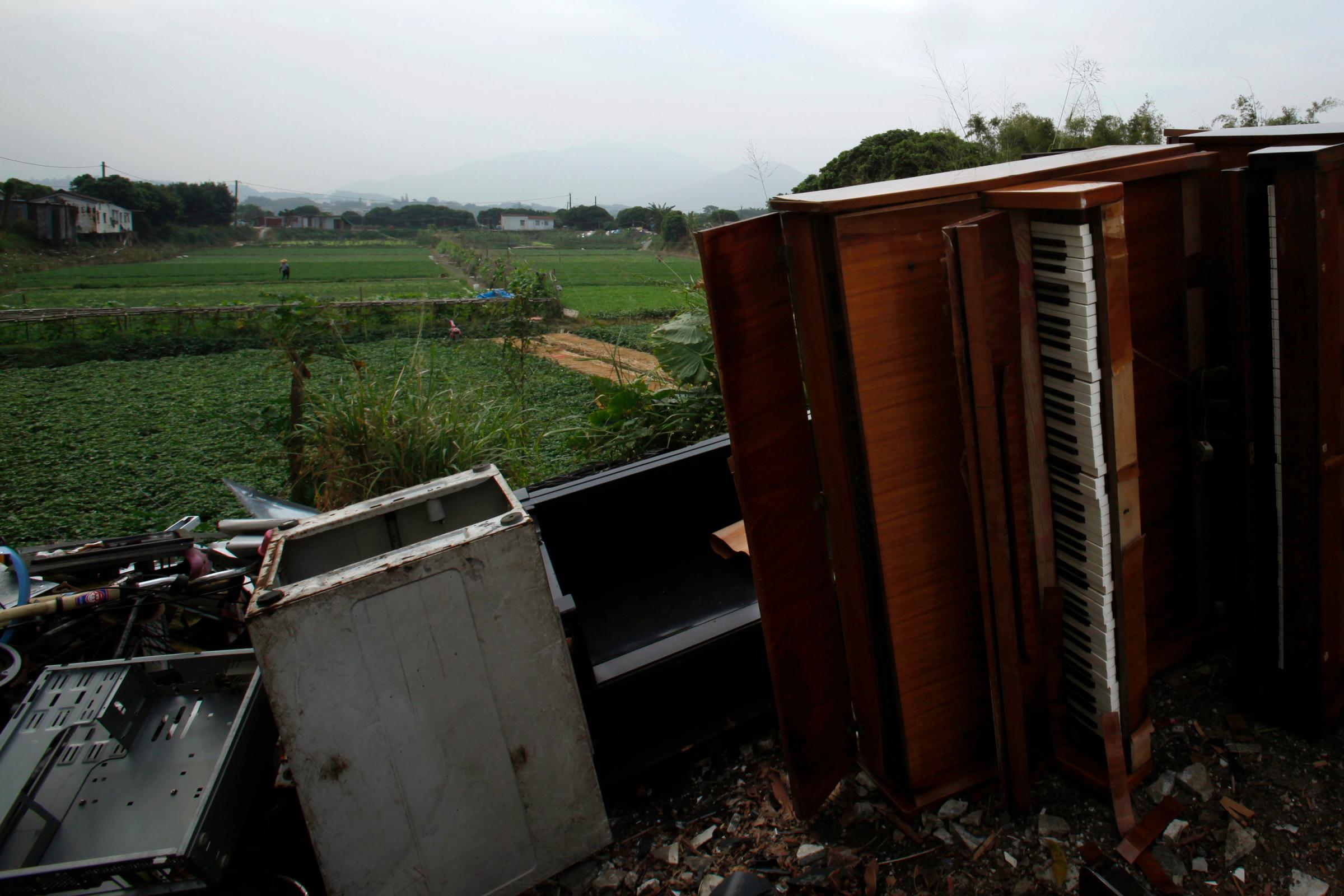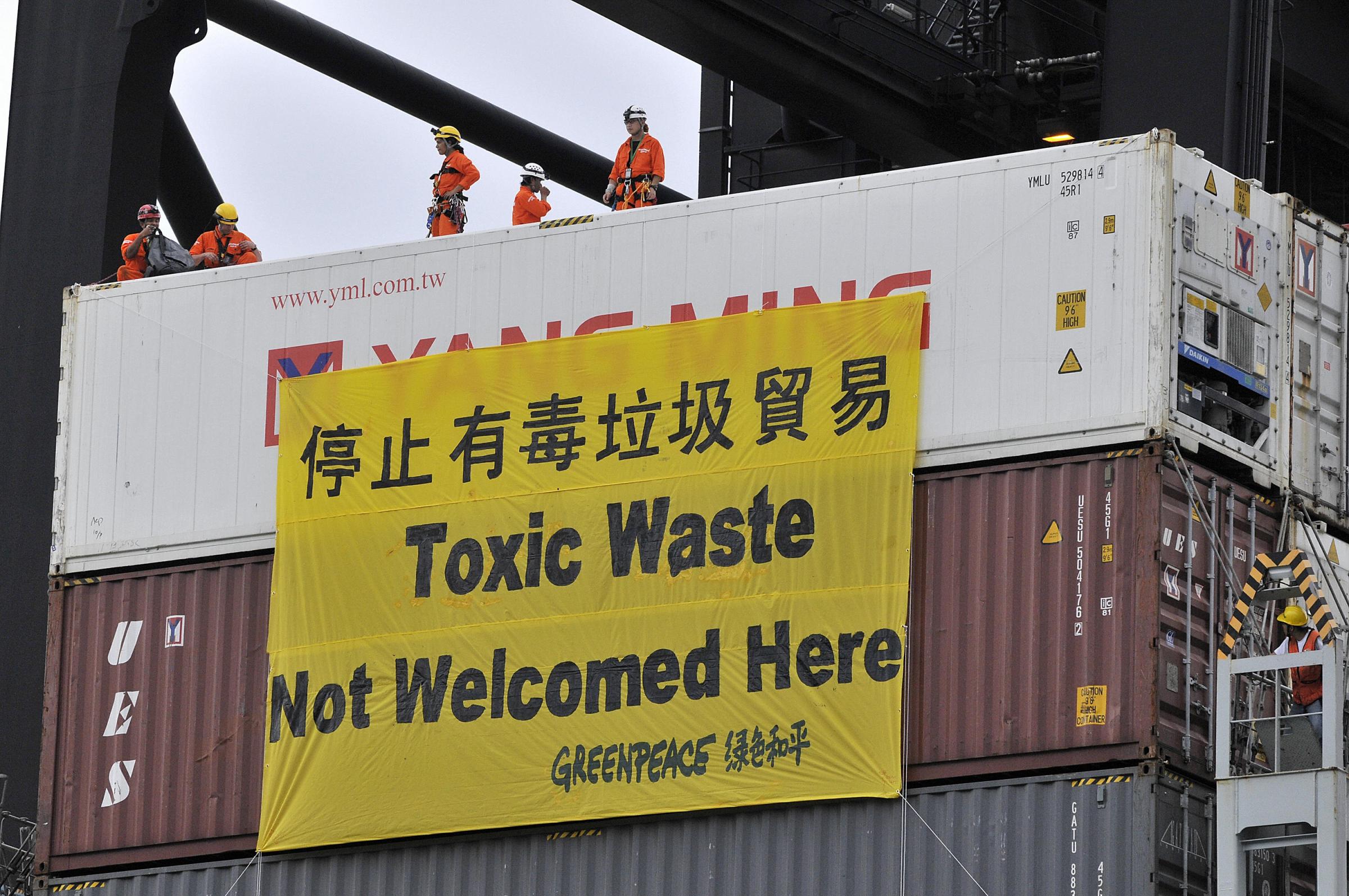
Roughly 20 km away from Hong Kong’s slick, densely packed urban center lies the New Territories — a suburban mishmash of rugged hills and scruffy villages, soaring new housing developments and vacant lots.
This is where over half of the territory’s 7.2 million people live. It could also be the resting place for your old PC or printer.
Up to 20% of all U.S. electronic waste may be ending up in Hong Kong. Not in some scrapyard in the developing world, picked over by haggard children and wheezing laborers, but in the backyard of one of the world’s most sophisticated financial capitals. That, at least, is the claim of a new investigation, which says the movement of these items is violating international treaties restricting cross-border transfer of hazardous electronic materials.
The conclusion stems from a two-year probe by Basel Action Network (BAN), a U.S.-based NGO focused on protecting the world’s environment from toxic materials. The group used GPS trackers to follow 205 pieces of discarded consumer electronics delivered to recyclers and other locations across America between July 2014 and February 2016.
BAN says that of all tracked items, 69 were exported, with 66 of those leaving the U.S. in possibly illicit fashion. While the U.S. has not ratified the Basel Convention, these exports are nevertheless illegal imports in their destinations, which have all ratified the convention. A rule governing exports of cathode ray tube (CRT) monitors in the U.S. also appeared to have been flouted, the report adds.
By the environmental watchdog’s estimates, as many as 43 shipping containers of e-waste could be illegally leaving American shores every day.

Jim Puckett, BAN’s founder and executive director, tells TIME that the practice of offshoring electronics supposedly destined for recycling has everything to do with money.
“It’s extremely expensive to do it right,” he explains, saying that recyclers saddled with items like monitors and computers could profit more from selling them to brokers scooping up e-waste instead of trying to properly dismantle them. Properly handling dangerous materials like mercury tubes takes considerable manual labor and cost.
Read More: Why You Should Never Throw Away Your Old Tech
BAN’s trackers point to 27 recyclers that appear to have sent e-waste to countries where importing U.S. e-waste is illegal. One of them, Total Reclaim in Seattle, had been certified under BAN’s own e-Stewards program, which explicitly bars participants from exporting e-waste. Nine others are certified under R2, a competing framework that allows exports, while 17 have not received any certification.
In September, Total Reclaim was fined $444,000 by Washington State’s Department of Ecology for illegally exporting flat screens and monitors containing hazardous materials, reports Seattle-area PBS station KCTS, which also documented a trip to Hong Kong made by BAN investigators. The recycler’s e-Stewards certification has now been struck for two years.
The final known location for over half of all exported items, totaling 37, was Hong Kong’s countryside. TIME’s attempts in mid-October to visit some of the 47 unique dumping sites identified in the report were largely fruitless.
One such site, located near Lau Fau Shan — an area otherwise known for its oyster beds — was more than 15 minutes’ walk from the nearest bus stop. Container lorries and construction trucks rumbled up and down Deep Bay Road, a single-lane carriageway without any paved sidewalk.
Upon arriving at the coordinates supplied by Puckett, the location was found to be boarded up and sealed off from outside view.
In its previous investigations, BAN would find containers of e-waste unloaded in New Territories junkyards, sorted and then transported to mainland China for further processing — the environmentally damaging recycling and dismantling in the Guangdong village of Guiyu has been well documented throughout the past decade.
However, since stringent regulations came in force in 2015, authorized electronics recycling in Guiyu has become limited within an industrial park, and smuggling e-waste into the notorious village is now impossible, explains Puckett. “Ironically,” he says, a first-world location like Hong Kong has become a new “ground zero” for processing e-waste.

In June, investigative reporters from Chinese-language news outlet HK01, working in association with BAN, found workers at some of these sites extracting precious metals like gold from circuit boards and electronic components by heating them in open air. HK01 also found that soil samples collected at these junkyards, some of which have seen fires break out previously, contain shockingly high concentrations of poisonous heavy metals. For example, one sample contains chromium — a highly toxic carcinogen — at almost 500 times Chinese safety limits.
“It’s mind-boggling, but it almost seems to us that the EPD [Hong Kong’s Environmental Protection Department] almost seems to be trying to avoid prosecution” of these sites, Puckett tells TIME.
Two weeks after BAN’s report was published, between late September and early October, a string of raids took place in Hung Lung Hang, a rural area just over a kilometer from the border and allegedly rife with illicit recycling facilities. The multiagency sting operation resulted in over 3,500 confiscated LCDs but no arrests, according to a government press release.
Puckett was disappointed by Hong Kong regulators’ actions. “It’s not difficult to prosecute these operators,” he says.
The EPD tells TIME in writing that it confiscated 150 tonnes of waste CRT monitors and 580 tonnes of waste LCD panels from 3,200 inspections of shipping containers between 2011 and 2015, resulting in 99 prosecutions for violations related to e-waste and over 80 convictions. It also says that, between August and September 2016, 10 containers of waste circuit boards had been intercepted and returned to their points of origin.
Read More: Electronic Waste: Where Does It Go and What Happens to It?
BAN’s investigation meanwhile turned up U.S. recyclers who appeared to not have full knowledge of the eventual destination of the e-waste they had received. In one instance, a printer dropped off by BAN with a recycler in Massachusetts ended up with another in Vermont and was subsequently shipped to the Chicago area before finally ending up in “Mr. Lai’s Farm,” an e-waste junkyard in the northwestern New Territories.
An attempt by TIME to visit “Mr. Lai’s Farm” found that an access road to the area had been completely sealed off with corrugated iron sheets. The area, peppered with container yards and low-density rural residential developments, appeared to be under construction work. A small pile of printers and LCDs was seen near a barrier.

Hong Kong’s EPD notes in its response that new legislation covering all hazardous e-waste, including previously unregulated items like printers, was expected to come in effect in 2017. But Greenpeace campaigner Andy Chu tells TIME that there’s more to ending e-waste dumping.
“The key of the problem is not how strongly laws are enforced, but how customs can intercept [e-waste] at points of import,” he says. “When amending relevant laws, there needs to be a clear distinction between ‘e-waste’ and ‘second-hand electronics.’ That way, importers won’t be able to import e-waste under the pretext of ‘second-hand electronics.’”
Speedier customs clearance is another area where Hong Kong can do better, according to Chu. Under Hong Kong law, importers have up to 14 days to submit to customs an “accurate and complete import or export/re-export declaration.” That gives unscrupulous importers of electronic waste all the time they need to mask the true nature of what they are importing.
As for the U.S., BAN hopes that a petition campaign could convince outgoing President Barack Obama to stop the export of the discarded taxpayer-funded electronic devices with an executive order.
Despite the gridlock on Capitol Hill, Obama can still stem a significant part of the outflow of U.S. e-waste “with a signature,” Puckett tells TIME.
More Must-Reads from TIME
- Donald Trump Is TIME's 2024 Person of the Year
- Why We Chose Trump as Person of the Year
- Is Intermittent Fasting Good or Bad for You?
- The 100 Must-Read Books of 2024
- The 20 Best Christmas TV Episodes
- Column: If Optimism Feels Ridiculous Now, Try Hope
- The Future of Climate Action Is Trade Policy
- Merle Bombardieri Is Helping People Make the Baby Decision
Contact us at letters@time.com